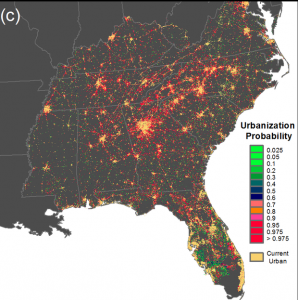
Roanoke — The New Silicon Valley?
Nestled in the Blue Ridge is a defunct railroad boomtown where Philadelphia businessmen set up a factory to build steam locomotives. When no one used steam locomotives anymore, Roanoke kept on chugging, living out its servile company-town attitude, building steam trains longer than any other manufacturer in the US. Now Roanoke is best described as a suburban breedery for fresh white teens to be extruded into a college and sent to a real city.
In Wagon Wheel, Old Crow Medicine Show’s adaptation of a fragment of a song Bob Dylan only sang once in an afterparty bootleg tape, Roanoke is a sleepy place where truckers stop to toke up, “Walkin’ to the south out of Roanoke / I caught a trucker out of Philly, had a nice long toke.” And Roanoke is a good place for that, but millions of dollars in tax money have been squandered on the Sydney Opera House wannabe art museum and the Explore Park, a fake town from the past that is once more haunted by hyperreal ghosts, phantasmagoric projections endlessly demonstrating blacksmithing and threshing wheat for the tourists who never came. Of course decriminalizing marijuana could increase tourism and tax revenues in one easy move, but that’d bring in the wrong element. But why not? The kids are already hitchhiking into Roanoke just to toke up with truckers because of that top 40 pop hit.
Today, Roanoke serves as a distribution center for auto parts, but its future in this business is as bleak as the vaguely sick-looking healthcare towers appearing around Riverside Park. Like so many other sickly cities, urban life has concentrated itself in a gussied-up market square where local news stations let anonymous business owners wring their nervous hands around the necks of the homeless who wreck the Disneyland vibe.
But Roanoke could revive its urban center in a meaningful way, maybe through promoting internet infrastructure that would bring fiber optics not only to businesses, but to homes. In Chattanooga, this was done as a municipal project, which is important because data is not simply a service, but it is also a valuable commodity. By holding the keys to all of Roanoke’s fiber optic data, a municipal system could sell this valuable data on the market and potentially lessen the cost of maintenance or even turn a profit. Proactive steps to ensure the privacy and civil rights of the citizenry in the implementation of such a system could potentially set this municipal internet apart from anywhere in the world, making the transaction of business safer and more desirable in Roanoke while bringing in all kinds of jobs just to lay the fiber and keep the lights flashing. Internet that’s quick, reliable, and secure should be thought of as essential infrastructure for the health and growth of a city, and if one plumbs the history of the earliest days of Roanoke things like streets, sewers, prisons, police, and firefighters were “left to the free market” (totally ignored) with disastrous and sickly results. This foresight in the construction of infrastructure would be a strong break from tradition in a city that embodies the corporate mentality and looks at any expenditure of tax money as a burden on business (while they line each others’ pockets with ludicrous projects; there were gas-powered street lights before there were streets).
Norfolk and Western used Roanoke as a site for their factory because they were given ten years without taxes by the local tobacco farmers. It wasn’t an ideal spot for habitation considering the salt-encrusted swamp, the “Big Lick.” There were no workers hanging around to man the factories — they came in on the rails for the jobs. In some ways it was a disgusting exploitation and the laughingstock of the state, but in others it was a brave experiment and unlike anywhere else. Jobs and a city were created, but it was for a single purpose: steam trains, metaphor of obsolescence. Can Roanoke find a new purpose?

One reply on “Does Roanoke have to have a Bleak Future?”
This is good ….